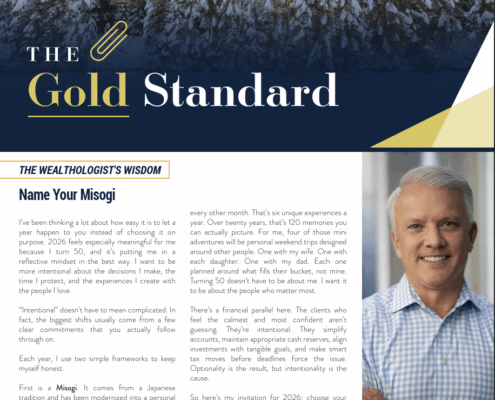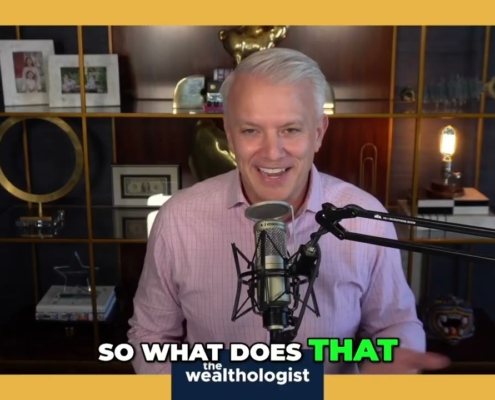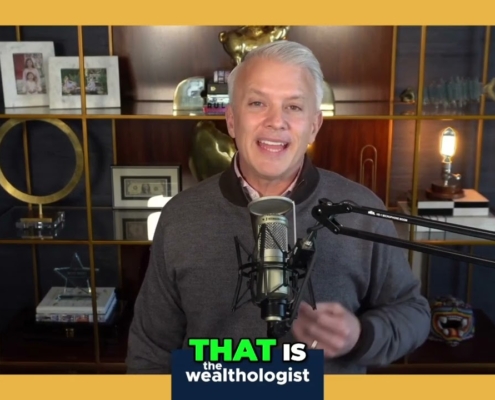 https://hobartwealth.com/wp-content/uploads/2023/08/Our-debt-is-almost-paid-off.-Cropped-shot-of-a-couple-using-their-laptop.jpg
1250
2000
Kim Collins
/wp-content/uploads/2022/11/Dark-Logo.png
Kim Collins2026-01-27 10:36:412026-01-30 14:28:10Be Prepared for Tax Season
https://hobartwealth.com/wp-content/uploads/2023/08/Our-debt-is-almost-paid-off.-Cropped-shot-of-a-couple-using-their-laptop.jpg
1250
2000
Kim Collins
/wp-content/uploads/2022/11/Dark-Logo.png
Kim Collins2026-01-27 10:36:412026-01-30 14:28:10Be Prepared for Tax SeasonSecuring long-term finances is a top priority for many people. To help protect their assets, many people partner with a professional for financial advice. Wealth managers and financial advisors offer a wide range of services designed to safeguard your net worth and make sure you have enough money to reach your dreams. But what’s the difference between these two groups? Learn more about what they typically offer and which one is suitable for growing your nest egg.
What Do Financial Advisors Do?
Financial advisors are licensed professionals who offer advice for managing money. This includes building an investment strategy and leveraging specific securities to safeguard and grow assets. They work with a wide variety of people and generally don’t have a minimum net worth for potential customers.
What Do Wealth Managers Do?
Wealth managers are a type of financial advisor. They provide more specialized strategies to their partners, including:
- Asset allocation: A wealth manager dispenses an investment portfolio among various asset categories, like stocks and bonds.
- Diversification: Wealth managers use diversification as a risk management strategy and impact asset loss.
- Rebalancing: A common strategy used by wealth managers is realigning a portfolio to maintain risk management when markets shift.
- Tax management: Minimizing the impact of taxes is a top priority for wealth managers. This process involves selling securities and replacing them with similar investments.
One major difference that distinguishes wealth managers from other financial advisors is the clientele they work with, typically high-net-worth individuals and their families.
How Do I Know if I Need a Wealth Manager?
Having a secure financial position today doesn’t mean you’ll have one in the future. Working with a wealth manager provides peace of mind by knowing a dedicated financial professional is managing your money. Here are some signs that you should start:
You Want to Invest More
Growing your net worth through investing requires a thorough understanding of how markets operate. Making poor decisions could impact your long-term financial goals and create a situation where you’re chasing losses. Partnering with a financial professional provides key insight into risk-averse securities that safeguard your assets.
You’re Looking to Maximize Your Options
Most individuals do not understand the nuances of various bonds and stock options. Hiring a wealth manager provides key insight into which mutual funds are best for your long-term financial health. They can also help determine the best time to divest options and reduce the costs of selling your position.
You Want to Protect Your Assets From Taxes
High-net-worth clients are often in the highest tax bracket, meaning Uncle Sam is ready to take his cut. Working with a reputable wealth manager gives you access to tax-saving strategies that reduce your burden and allow you to keep more of your money.
You Want to Create an Estate Plan
For many individuals, protecting the interests of their families after they pass is a top priority. By working with a wealth management advisor, you can create an estate or legacy plan that carefully details how your assets should be distributed after you die.
Share This Post
Read More
 https://hobartwealth.com/wp-content/uploads/2023/08/Our-debt-is-almost-paid-off.-Cropped-shot-of-a-couple-using-their-laptop.jpg
1250
2000
Kim Collins
/wp-content/uploads/2022/11/Dark-Logo.png
Kim Collins2026-01-27 10:36:412026-01-30 14:28:10Be Prepared for Tax Season
https://hobartwealth.com/wp-content/uploads/2023/08/Our-debt-is-almost-paid-off.-Cropped-shot-of-a-couple-using-their-laptop.jpg
1250
2000
Kim Collins
/wp-content/uploads/2022/11/Dark-Logo.png
Kim Collins2026-01-27 10:36:412026-01-30 14:28:10Be Prepared for Tax Season
Medicaid Trusts: What They Are, Why People Use Them, and the Parts That Get Left Out

Your 2026 Playbook: Enjoy the Gains, Respect the Math
 https://hobartwealth.com/wp-content/uploads/2026/01/Jan_Feb.png
1188
916
Kim Collins
/wp-content/uploads/2022/11/Dark-Logo.png
Kim Collins2026-01-07 07:51:282026-01-07 07:53:09January-February Newsletter – 2026
https://hobartwealth.com/wp-content/uploads/2026/01/Jan_Feb.png
1188
916
Kim Collins
/wp-content/uploads/2022/11/Dark-Logo.png
Kim Collins2026-01-07 07:51:282026-01-07 07:53:09January-February Newsletter – 2026 https://hobartwealth.com/wp-content/uploads/2026/01/dec29.jpg
720
1280
Kim Collins
/wp-content/uploads/2022/11/Dark-Logo.png
Kim Collins2025-12-31 08:38:092026-01-07 08:41:302026 Wealth Outlook: Your Retirement Income Secrets Revealed!
https://hobartwealth.com/wp-content/uploads/2026/01/dec29.jpg
720
1280
Kim Collins
/wp-content/uploads/2022/11/Dark-Logo.png
Kim Collins2025-12-31 08:38:092026-01-07 08:41:302026 Wealth Outlook: Your Retirement Income Secrets Revealed!
A 401(k) Rule Change High Earners Over 50 Should Know

2026 Equity Market Trends
 https://hobartwealth.com/wp-content/uploads/2023/06/live.png
2550
3300
Kim Collins
/wp-content/uploads/2022/11/Dark-Logo.png
Kim Collins2025-12-18 08:45:302026-01-07 08:46:47The Wealthologist Live – December 2025
https://hobartwealth.com/wp-content/uploads/2023/06/live.png
2550
3300
Kim Collins
/wp-content/uploads/2022/11/Dark-Logo.png
Kim Collins2025-12-18 08:45:302026-01-07 08:46:47The Wealthologist Live – December 2025 https://hobartwealth.com/wp-content/uploads/2025/12/dec15.jpg
720
1280
Kim Collins
/wp-content/uploads/2022/11/Dark-Logo.png
Kim Collins2025-12-17 08:33:512026-01-07 08:37:45Wealthologist: Decoding Economic Data for Your Retirement
https://hobartwealth.com/wp-content/uploads/2025/12/dec15.jpg
720
1280
Kim Collins
/wp-content/uploads/2022/11/Dark-Logo.png
Kim Collins2025-12-17 08:33:512026-01-07 08:37:45Wealthologist: Decoding Economic Data for Your RetirementHobart Wealth is a DBA of Hobart Private Capital, LLC. Investment advisory services offered through Hobart Private Capital, LLC, an SEC-Registered Investment Advisor. Insurance services offered separately through Hobart Insurance Services, LLC, an affiliated insurance agency. Hobart Private Capital and its affiliates are not certified tax or legal advisors. Any reduction in taxes would depend on your specific tax situation. You are advised to seek the advice of a qualified tax or legal professional for such matters. This information is intended for educational purposes only. It is not intended to provide any investment advice or provide the basis for any investment decisions. Investing in securities involves risk, including potential loss of principal. No investment strategy can guarantee a profit or protect against loss in periods of declining values. Please see Item 8 of our ADV 2A Brochure for additional information on the risks associated with our services. By submitting your contact information, you consent to be contacted in the future regarding retirement income strategies that utilize insurance and investment products. Any references to protection of benefits, safety, security, or steady and reliable income refer only to fixed insurance products. They do not refer, in any way, to securities or investment products. Insurance product guarantees are backed by the financial strength and claims-paying ability of the issuing insurance company, and may be subject to fees, surrender charges, and holding periods which vary by insurance company. Insurance products are not FDIC insured. Our firm provides links to third party articles to assist users in locating information on topics that might be of interest to them. Linking to an article or web site does not constitute a representation of the services offered by our firm nor does it constitute an endorsement by the Firm of the sponsors of the site or the products presented on the site. Please consult your tax, legal, and/or financial advisor prior to making any decisions regarding these third-party articles. Hobart Wealth is not affiliated with the U.S. government or a governmental agency. No information contained within was approved by, endorsed by, or authorized by the Social Security Administration.



